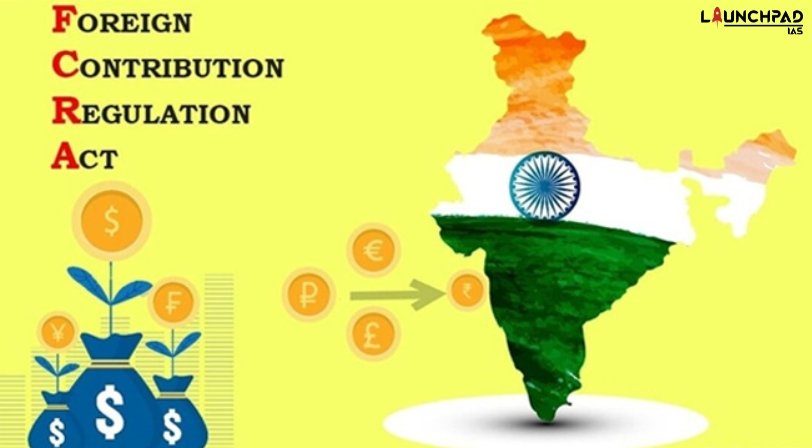Recent context:
Central govt has granted FCRA permission to Taiwan-headquartered Buddhist organization, which originated in the 1960s and est. its Delhi centre in 2008.
What is the Foreign Contribution Regulation Act?
About:
- FCRA was enacted during the Emergency in 1976 amid apprehensions that foreign powers were interfering in India’s affairs by pumping money into the country through independent organizations.
- The law sought to regulate foreign donations to individuals and associations so that they functioned in a manner consistent with the values of a sovereign democratic republic.
- Economic Security is one of the bases for the enactment of the Foreign Contribution Regulations Act.
Amendments:
- An amended FCRA was enacted in 2010 to “consolidate the law” on the utilization of foreign funds, and “to prohibit” their use for “any activities detrimental to the national interest”.
- The law was amended again in 2020, giving the government tighter control and scrutiny over the receipt and utilization of foreign funds by NGOs.
Criteria:
- The FCRA requires every person or NGO seeking to receive foreign donations to be:
- registered under the Act
- to open a bank account for the receipt of foreign funds in the State Bank of India, Delhi
- to utilize those funds only for the purpose for which they have been received and as stipulated in the Act.
- FCRA registrations are granted to individuals or associations that have definite cultural, economic, educational, religious, and social programs.
Significance of regulating foreign contributions in India:
- Preventing interference in Indian affairs: The FCRA was enacted to prevent foreign powers from interfering in India’s affairs by regulating foreign donations to individuals and associations.
- Transparency and accountability: The FCRA ensures transparency and accountability which is important to prevent misuse of funds.
- National security: The FCRA also helps in safeguarding national security interests by preventing foreign entities from funding activities that could be detrimental to India’s security.
- Promoting social and economic development: Foreign contributions can be an important source of funding for social and economic development in India.
Exceptions:
- Under the FCRA, the applicant should not be fictitious and should not have been prosecuted or convicted for indulging in activities aimed at conversion through inducement or force, either directly or indirectly, from one religious faith to another.
- The applicant should also not have been prosecuted for or convicted of creating communal tension or disharmony.
- Also, should not be engaged or likely to be engaged in the propagation of sedition.
- The Act prohibits the receipt of foreign funds by candidates for elections, journalists or newspaper and media broadcast companies, judges and government servants, members of the legislature and political parties or their office-bearers, and organizations of a political nature.
Validity:
- FCRA registration is valid for 5 years, and NGOs are expected to apply for renewal within six months of the date of expiry of registration.
- The government can also cancel the FCRA registration of any NGO if it finds that the NGO is in violation of the Act, if it has not been engaged in any reasonable activity in its chosen field for the benefit of society for two consecutive years, or if it has become defunct.
- Once the registration of an NGO is canceled, it is not eligible for re-registration for three years.
FCRA 2022 Rules:
- In July 2022, the MHA effected changes to FCRA rules which increased the number of compoundable offences under the Act from 7 to 12.
- The other key changes were exemption from intimation to the government for contributions less than Rs 10 lakh – the earlier limit was Rs 1 lakh — received from relatives abroad, and an increase in the time limit for intimation of the opening of bank accounts.
Related Links:


